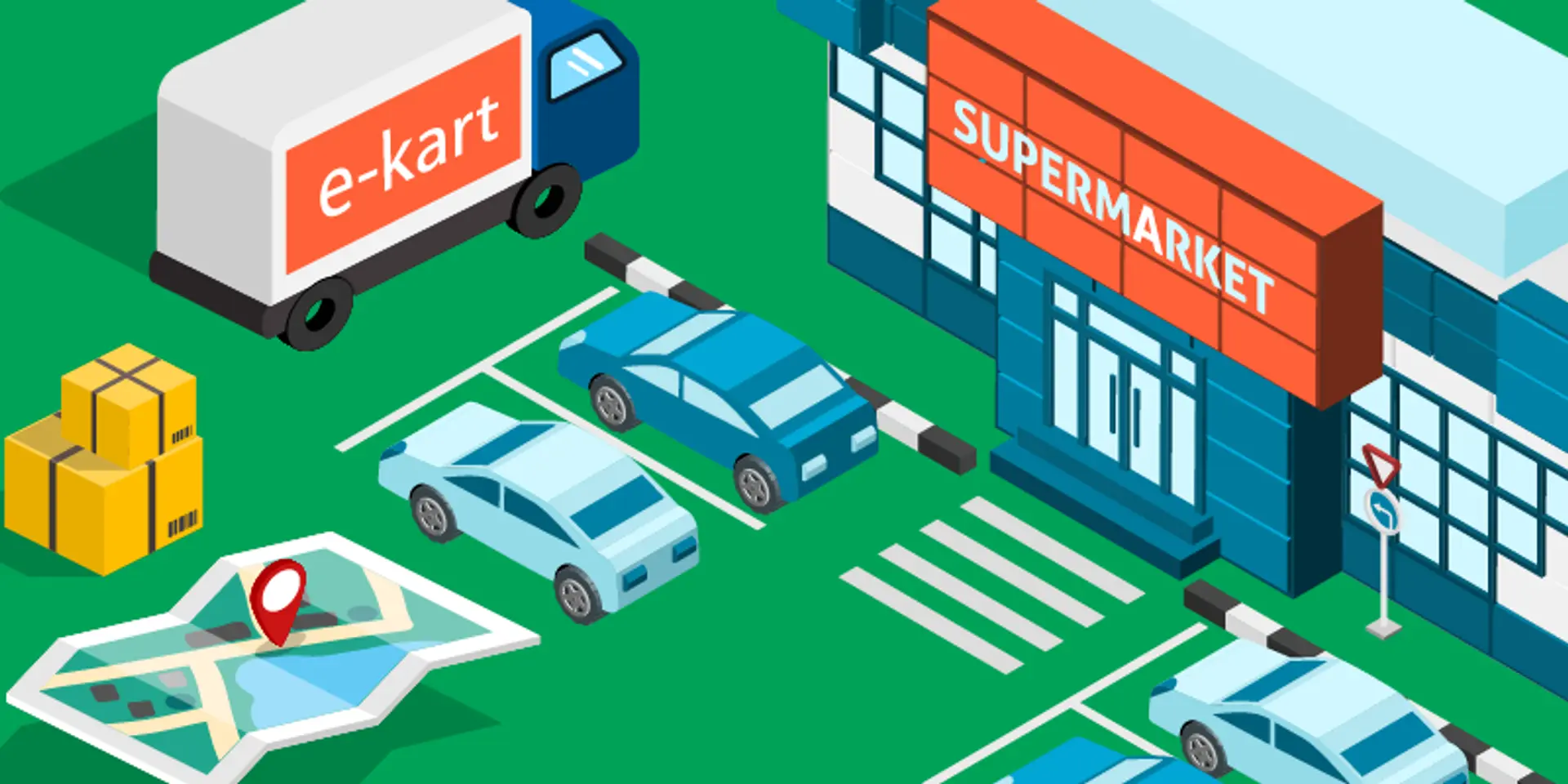Flipkart’s logistics arm Ekart unveils alternative delivery model
With logistics still a challenge for Indian e-commerce industry, many players are trying out new models to solve the problem of getting packages to customers in as cost effective a manner as possible. Ekart – the logistics arm of Flipkart – is piloting automated lockers. The pilot will run in tech parks, where customers can pick up the packages delivered at the lockers in office buildings.
Neeraj Aggarwal, Vice President of Last Mile Operation, told YourStory: “This is an early-stage experiment for automated lockers, supported by Qikpod’s tech. Now customers who get package delivered in offices need not worry about when the delivery boy would come.” Flipkart is an investor in Qikpod, a parcel-delivery startup. The locker facility is not available for CoD orders. Every customer will be given a unique pin to ensure that the packages are secure.

Locked up safe
Lockers in 24/7 stores and supermarkets are common in the West. Ekart is the first to introduce this service in India. In the US, many e-commerce players have tied up with Target or Walmart stores. Customers who are not typically accessible during the day, can pick their shipment from the lockers set up at these stores. Kiosks are also quite popular in the West.
In China, e-commerce companies have tied up with grocery stores to leverage them for last-mile delivery for a long time. For instance, Alibaba incorporates a grocer to their network via its app, providing them an additional revenue stream.
In India, only certain parts of metros have the customer-not-at-home problem. Many people give their office address for delivery. Neeraj says that techie customers have asked them for pickup points in their tech parks. Flipkart started offering such pick up points a few months ago. Early 2015, they had launched experience zones in selected cities, so that customers can pick up the packages by themselves from there at their convenience. Experience zones allow instant return along with on-the-spot demo of certain products.
Finding synergy
In another model, Ekart’s hubs deliver the packages at kirana stores they partner with. These stores, concentrated in residential areas, can easily deliver more than once a day. “Currently, each kirana does 25–30 deliveries per day; that is about seven per cent of total delivery across India. We want to make it 3,000 kiranas, about 25 per cent, this year,” says Neeraj.
Customer feedback has been pretty good, Neeraj claims. Such a move benefits these partners too, as Ekart pays them a commission based on the number of their deliveries. It is a source of extra revenue for them, without any investment. Since January 2016, Ekart has tied up with 700 kirana stores across 28 cities.
Manish Saigal, Managing Director at Alvarez and Marsal, believes that such alternate methods do face a challenge. “Is the unit economics viable for this channel? There are rental costs associated, and this investment makes sense only for a certain scale of volumes,” he says. He recommends that reverse pickups be allowed so that customers can walk into these kirana stores for return instead of waiting three to four days for the delivery boy to come and pick up. Ekart is planning to provide it soon.
The Ekart story
Flipkart is aiming to grow 10 times in the next three years, which means the current manpower of 10,000 delivery boys will have to become 1,00,000. Leveraging the existing ecosystem will be more logical than hiring thousands. Ekart has also tied up with Apollo pharmacy to let their customers pick up packages from 283 Apollo outlets across 10 cities in the country.
“About 14 per cent of deliveries are happening via these methods now, and we are aiming to make it 35 per cent this year. The strategy is aimed not at saving costs, but at scalability,” Neeraj says. Ekart provides the same service for its clients other than Flipkart too.
Flipkart’s biggest rival Amazon also lets its users pick up their products from 2,000 stores across 50 cities. They provide one-day delivery, two day, same day, release day, and Sunday delivery in selected cities. But according to Manish, two to three hours delivery is an essential disruption for e-commerce industry. “Any store with two to three kilometre reach, hyperlocal deliveries, or even robotics like drones will be the way to do it. Or you keep kiosks with basic grocery, where people will go even late at night,” he says. In India, Jabong had partnered with kirana and paan-beedi shops about three years ago. But they could not drive it beyond a point. Jabong is currently planning omni channel strategy in logistics.
Ekart’s latest move will surely reduce costs in long term, as the average number of attempt for delivery is often more than one. Customers are changing too – hopefully, such channels will bring down the number of CoD orders, thereby saving a lot for an industry in which few have turned profitable.







